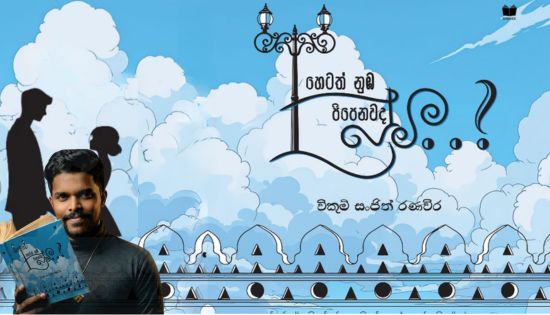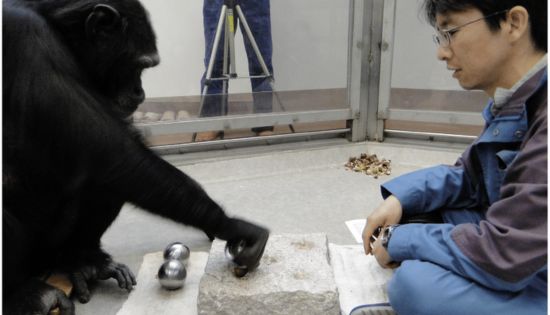TAFE vs University, which is the Better Choice for Studying in Australia?
Navigating the educational landscape in Australia presents a pivotal decision for aspiring students, particularly those from Sri Lanka seeking to enhance their qualifications. The choice between Technical and Further Education (TAFE) institutions and traditional universities hinges on various factors, including cost, course duration, employment prospects, and learning styles.

Cost Considerations
Financial implications play a significant role in educational decisions. TAFE courses are generally more affordable than university programs, primarily due to their shorter duration. Depending on the course and any available subsidies, a TAFE certificate or diploma can range from $200 to $19,000. In contrast, a bachelor’s degree at a university can cost between $16,000 and $40,000.
Duration and Structure of Courses
The time commitment required differs notably between TAFE and university studies. TAFE offers courses ranging from a few months up to two years, providing certificates or diplomas upon completion. Universities, however, typically require a minimum of three years for a bachelor’s degree, with master’s and doctoral programs extending beyond that.
Employment Outcomes
Employment prospects post-graduation is a crucial consideration. Recent data indicates that 84% of individuals aged 15-74 who completed a non school qualification in 2023 were employed in 2024. Additionally, university graduates have seen improved employment rates, with the undergraduate employment rate reaching 79% and the overall employment rate increasing to 88.9% in 2023.
Learning Approach and Practical Experience
TAFE institutions are renowned for their hands on, practical approach to education, aligning closely with industry needs. This practical focus often leads to direct employment opportunities, as students gain experience during their studies. Universities, conversely, emphasize theoretical knowledge and research, which may suit those pursuing careers in academia or fields requiring extensive theoretical understanding.
Entry Requirements and Pathways
TAFE courses typically have more accessible entry requirements, often accepting students with Year 10, 11, or 12 certificates, depending on the course level. Universities usually require a higher Australian Tertiary Admission Rank (ATAR) score and may have additional prerequisites. Notably, TAFE can serve as a pathway to university education, allowing students to progress to higher-level qualifications, often with credit transfers.
Campus Experience and Learning Environment
The campus experience varies between TAFE and university settings. Universities often offer larger campuses with a broader range of extracurricular activities, providing a traditional student life experience. TAFE institutions, while sometimes sizable, tend to focus more on delivering specific training with a direct pathway to employment, offering a different campus atmosphere.
For Sri Lankan students contemplating studies in Australia, the decision between TAFE and university depends on individual career goals, financial considerations, and preferred learning styles. TAFE offers cost effective, practical training with shorter course durations, leading to swift entry into the workforce. Universities provide in depth theoretical education, which may be essential for certain professions. Evaluating personal objectives and the specific requirements of the desired career path is essential in making an informed choice.
Related News
Six Tips For Choosing a Future Career
Not sure what your future career looks like? Here are six tips to help you find the right career for you. 1.…
Read MoreBritish Council Women in STEM scholarships to study in the UK nowopen to Sri Lankans
British Council Women in STEM scholarships to study in the UK nowopen to Sri Lankans For the sixth consecutive year, the British…
Read MoreWuthering Heights: Book vs Movie – Which Resonates More?
Read • Watch • Learn When Emily Brontë published Wuthering Heights in 1847, few expected the novel to become one of the…
Read MoreWycherley International School Dehiwala Hosts Joyful Kiddies Fiesta 2026 Celebration
Wycherley International School Dehiwala welcomed students, parents and teachers to a spirited celebration of childhood at its Kiddies Fiesta 2026 on 11…
Read MoreCourses
-

The future of higher education tech: why industry needs purpose-built solutions
For years, Institutions and education agencies have been forced to rely on a patchwork of horizontal SaaS solutions – general tools that… -

MBA in Project Management & Artificial Intelligence – Oxford College of Business
In an era defined by rapid technological change, organizations increasingly demand leaders who not only understand traditional project management, but can also… -

Scholarships for 2025 Postgraduate Diploma in Education for SLEAS and SLTES Officers
The Ministry of Education, Higher Education and Vocational Education has announced the granting of full scholarships for the one-year weekend Postgraduate Diploma… -

Shape Your Future with a BSc in Business Management (HRM) at Horizon Campus
Human Resource Management is more than a career. It’s about growing people, building organizational culture, and leading with purpose. Every impactful journey… -

ESOFT UNI Signs MoU with Box Gill Institute, Australia
ESOFt UNI recently hosted a formal Memorandum of Understanding (MoU) signing ceremony with Box Hill Institute, Australia, signaling a significant step in… -

Ace Your University Interview in Sri Lanka: A Guide with Examples
Getting into a Sri Lankan sate or non-state university is not just about the scores. For some universities' programmes, your personality, communication… -

MCW Global Young Leaders Fellowship 2026
MCW Global (Miracle Corners of the World) runs a Young Leaders Fellowship, a year-long leadership program for young people (18–26) around the… -

Enhance Your Arabic Skills with the Intermediate Language Course at BCIS
BCIS invites learners to join its Intermediate Arabic Language Course this November and further develop both linguistic skills and cultural understanding. Designed… -

Achieve Your American Dream : NCHS Spring Intake Webinar
NCHS is paving the way for Sri Lankan students to achieve their American Dream. As Sri Lanka’s leading pathway provider to the… -

National Diploma in Teaching course : Notice
A Gazette notice has been released recently, concerning the enrollment of aspiring teachers into National Colleges of Education for the three-year pre-service… -

IMC Education Features Largest Student Recruitment for QIU’s October 2025 Intake
Quest International University (QIU), Malaysia recently hosted a pre-departure briefing and high tea at the Shangri-La Hotel in Colombo for its incoming… -

Global University Employability Ranking according to Times Higher Education
Attending college or university offers more than just career preparation, though selecting the right school and program can significantly enhance your job… -

Diploma in Occupational Safety & Health (DOSH) – CIPM
The Chartered Institute of Personnel Management (CIPM) is proud to announce the launch of its Diploma in Occupational Safety & Health (DOSH),… -

Small Grant Scheme for Australia Awards Alumni Sri Lanka
Australia Awards alumni are warmly invited to apply for a grant up to AUD 5,000 to support an innovative project that aim… -

PIM Launches Special Programme for Newly Promoted SriLankan Airlines Managers
The Postgraduate Institute of Management (PIM) has launched a dedicated Newly Promoted Manager Programme designed to strengthen the leadership and management capabilities…
Newswire
-

Duminda Silva named as suspect in Rs. 15 Mn Drug Bail Bribery Case
ON: March 3, 2026 -

Court to Consider Ex-Deputy Parliament Secretary’s Petition March 18
ON: March 3, 2026 -

Russia says no proof Iran developing nuclear weapons
ON: March 3, 2026










